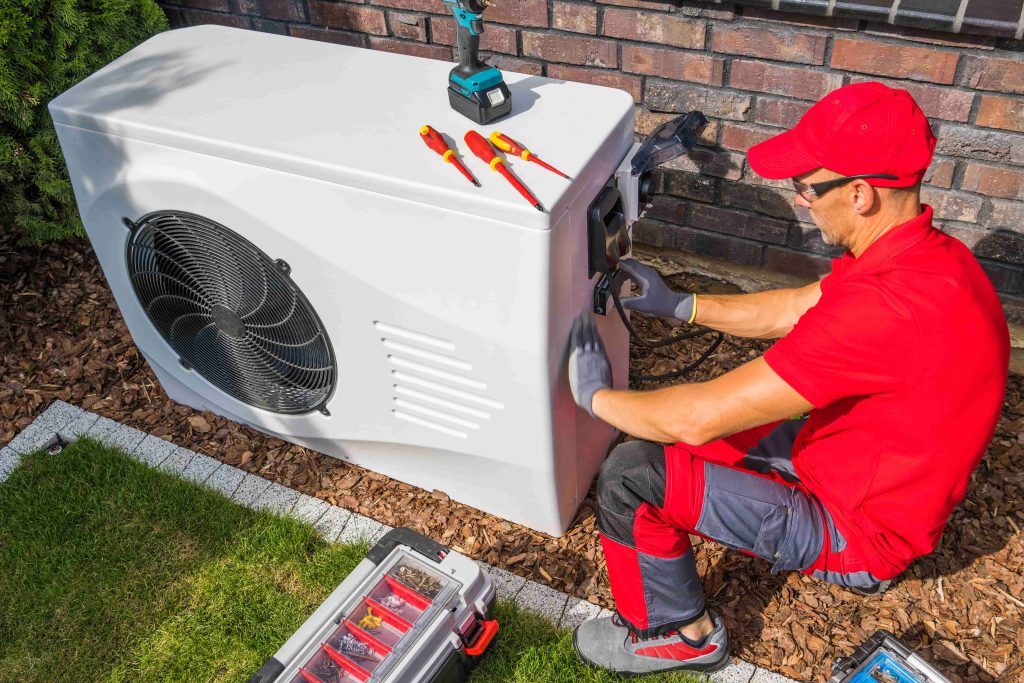If you’re looking for an efficient way to heat and cool your home, you’ve probably heard that heat pumps are one of the best all-in-one systems available.
But how do they actually work? In this article, we break down how heat pumps operate, why they’re so efficient, and answer some of the most common questions we get from customers.
What Is a Heat Pump?
A heat pump is a smart, energy efficient system that moves heat from one place to another. Instead of burning fuel to create heat like a traditional heater, it uses electricity to transfer existing heat from the outside air into your home. And during the warmer months, the process is reversed—it removes heat from your home and releases it outdoors, just like an air conditioner.
Heat pumps come with two main components: an outdoor unit and an indoor unit. These work together using a special refrigerant that flows between them, absorbing and releasing heat depending on the season. This continuous loop means you get heating in winter and cooling in summer, all from the same system.
Why Are Heat Pumps So Efficient?
Because heat pumps transfer heat rather than generate it, they use far less electricity than traditional heating or cooling systems. For every unit of electricity a heat pump consumes, it can produce three to four units of heating or cooling energy. This makes them a cost effective, environmentally friendly option for year round comfort.
Can a Heat Pump Work with Radiators?
Yes, heat pumps can work with radiators, but there are a few things to consider. Traditional radiators are designed for high temperature systems like boilers, which run at around 70 to 80°C. Heat pumps operate at lower temperatures, typically 35 to 55°C, so they need more efficient radiators, often larger in size, to produce the same level of warmth.
If you’re looking to install a heat pump in a home with existing radiators, it’s a good idea to have them assessed. In some cases, you may need to upgrade the radiators or improve your home’s insulation to ensure the system performs at its best.
Are Heat Pumps Noisy?
Not at all. Modern heat pumps are surprisingly quiet. Most outdoor units operate at around 40 to 60 decibels, which is similar to the sound of light rain or a conversation. Indoor units are even quieter, making them perfect for living rooms and bedrooms. Proper installation plays a big role too; mounting the system securely and placing it in the right location can reduce any minor vibrations or sound.
Can Solar Panels Power a Heat Pump?
Yes, and this combination is becoming more popular across New Zealand. Since heat pumps already use electricity very efficiently, adding solar panels to the mix allows you to offset most or all of the running costs. With the right solar setup and insulation, you could significantly reduce your power bills while keeping your home comfortable all year long.
Do I Still Need a Boiler if I Have a Heat Pump?
Not necessarily. In many homes, a heat pump can completely replace a traditional boiler. If you install an air to water heat pump, it can also provide hot water alongside heating. That said, if your household has high hot water demands, a backup system or hybrid setup might be worth considering.
For homes using air to air heat pumps, you’ll still need a separate water heating solution, as these systems focus solely on heating and cooling the air.
Heat pumps are a smart choice for New Zealand homes. They’re energy efficient, environmentally friendly, and offer both heating and cooling in one system.
Whether you’re upgrading from an older system or building new, Comfort Group can help you choose the right heat pump setup for your home or business. With over 25 years of experience, we provide expert advice, installation, and servicing across a wide range of heat pump systems.


